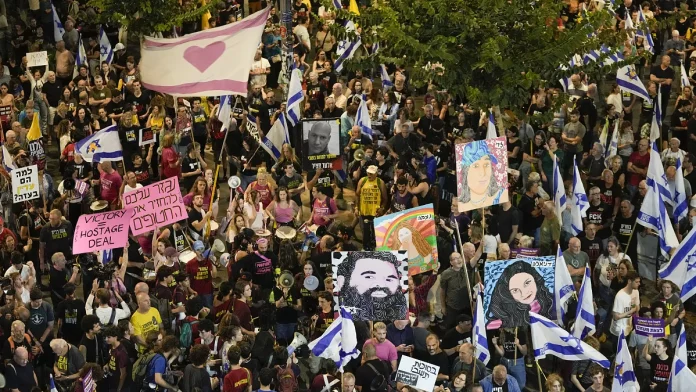The recent death of Yahya Sinwar, a prominent leader of Hamas, has reignited hopes among Israelis that the remaining hostages held in Gaza could soon be released. On Saturday, large protests broke out across several Israeli cities, with demonstrators urging Prime Minister Benjamin Netanyahu to prioritize the safe return of hostages. Many believe that Sinwar’s hardline stance against negotiating with Israel had long been a roadblock to potential ceasefire deals, and his death might open the door to new opportunities for diplomacy.
Sinwar, who was often seen as a key figure in rejecting ceasefire agreements, had been accused by U.S. officials of obstructing previous peace talks mediated in Cairo. With his death, many in Israel are hopeful that the path to a ceasefire may now be clearer, but much will depend on the Israeli government’s next steps. Prime Minister Netanyahu, who is balancing pressure from both far-right coalition members and Western allies, is now facing increased domestic pressure to strike a deal and bring an end to the conflict.
Public Outcry for Hostage Returns
The protests that erupted over the weekend reflected the growing sentiment in Israel that the government’s focus should be on securing the return of hostages still being held in Gaza. Eran Nissan, an activist and regular participant in anti-government demonstrations, believes there is a strong consensus within Israeli society on the need for negotiations. He pointed to a previous ceasefire in November, during which 105 hostages were released as part of an exchange deal, as evidence that negotiations can yield results.
Currently, Israeli authorities estimate that 101 hostages are still in Gaza, with reports suggesting that up to one-third of them may already be dead. Despite these grim figures, many believe that Netanyahu’s government is prolonging the war for political reasons rather than focusing on hostage negotiations.
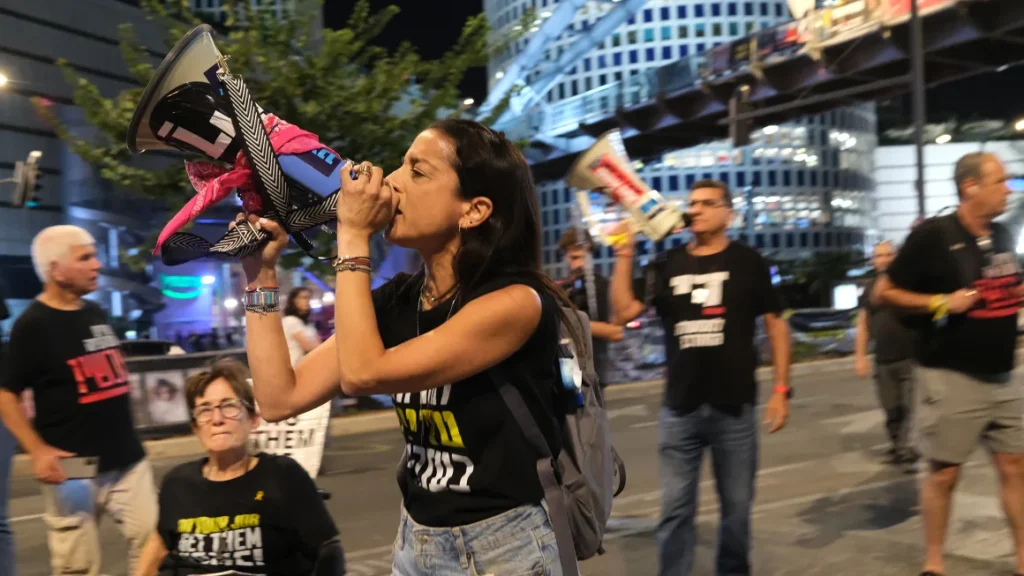
Accusations of Political Motives
Nissan and other protesters have accused the Netanyahu government of having ulterior motives for extending the conflict. Many believe that ending the war now would force the government to face tough questions regarding its role in the security failures leading up to the deadly Hamas attack on October 7. Critics argue that Netanyahu’s administration is avoiding a national inquiry and the possibility of elections that could come in the aftermath of the conflict, especially as polls indicate declining support for the current government.
Prime Minister Netanyahu has not yet provided a clear strategy on how he plans to leverage Sinwar’s death. He has only stated that Israel’s fight against Hamas will continue “until victory.” Netanyahu’s rhetoric, while strong, has done little to quell the growing public demand for the immediate return of hostages.
Families of Hostages Demand Action
For families of those still held in Gaza, the death of Yahya Sinwar represents a critical moment. Yoni Levy, whose daughter Naama was captured by Hamas on October 7, believes the government should seize the opportunity to negotiate a ceasefire and secure the hostages’ release. Naama, who was serving as a lookout near the Gaza border when she was kidnapped, became a symbol of the brutal attacks after images of her bloodied and injured surfaced online.
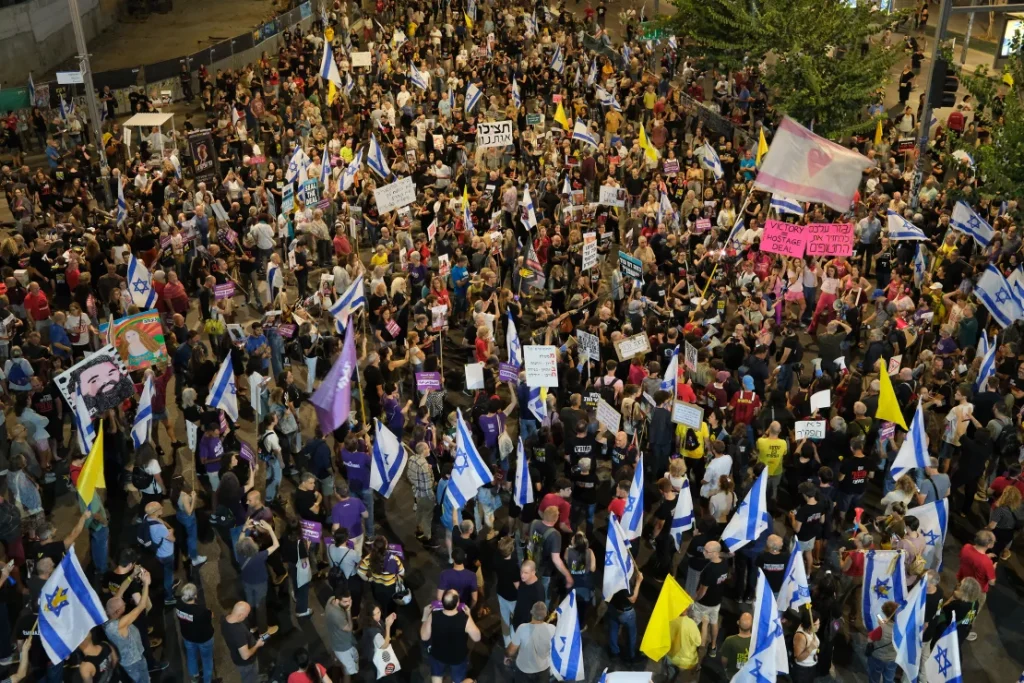
Levy is calling for the government to take the necessary steps, even if it means releasing Palestinian prisoners in exchange for the hostages. “We killed this horrible guy, but we should not move our focus,” Levy said, referring to Sinwar’s death. For him, the priority is bringing Naama and others like her home, even if it requires concessions.
Symbolic Protest for Naama’s Return
At a gathering in Hostages Square, outside the Museum of Art in Tel Aviv, dozens of women who either knew Naama or served in a similar military role gathered to call for her release. The women wore the same clothes Naama had on during the attack and used red paint to symbolize the injuries she sustained. The protest was organized by Amit Frid, who said that Naama should have already been returned to Israel. “She should have been home the day after the attack, she should have been home yesterday, today, tomorrow,” Frid said.
The protest, while focused on Naama, underscored the broader demand for the Israeli government to prioritize the return of all hostages. Families and supporters have been meeting weekly since the October 7 attacks, growing more vocal in their criticism of the government’s handling of the situation.
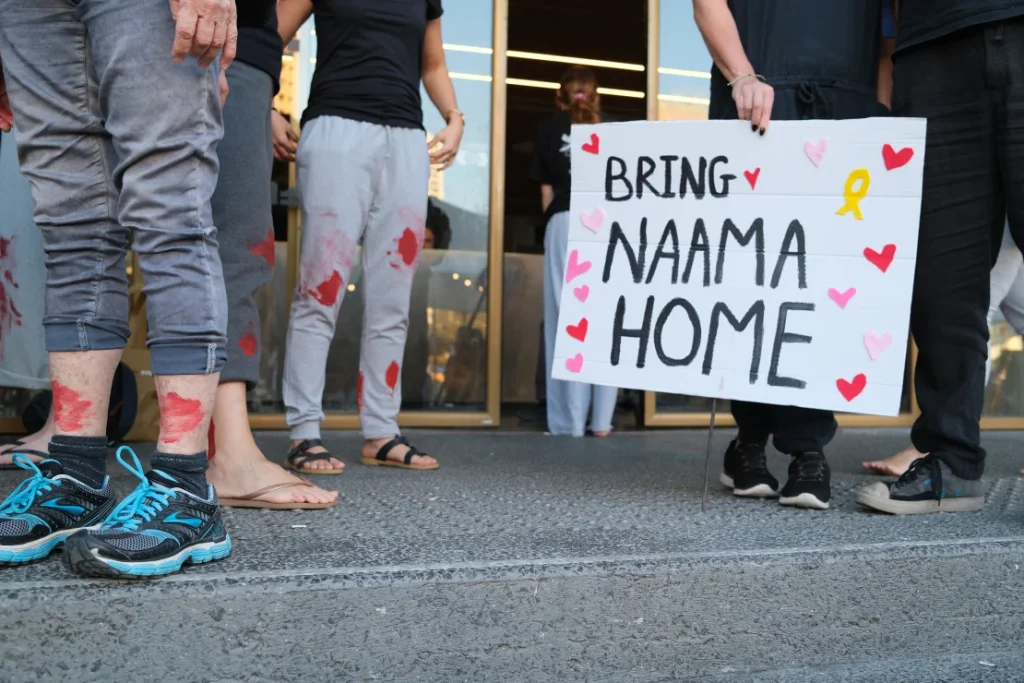
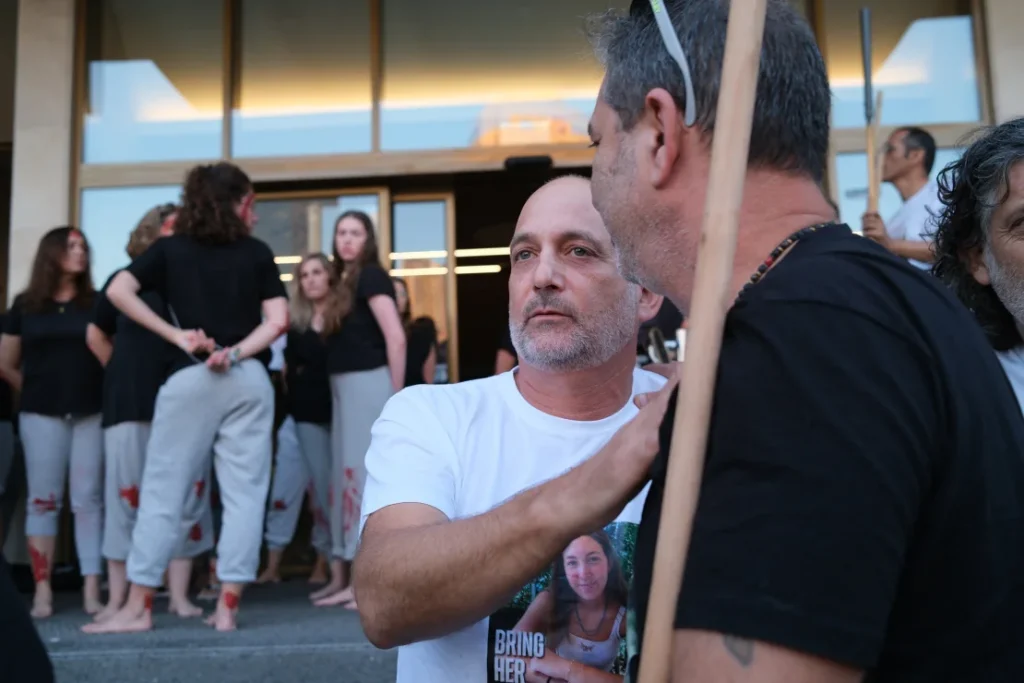
Hamas Vows No Hostages Will Be Released
In response to Sinwar’s death, Hamas issued a statement declaring that no further hostages would be freed until Israel ended its military operations in Gaza, withdrew entirely, and released Palestinian prisoners. Despite this hardline stance, Netanyahu has hinted at his willingness to negotiate, offering amnesty to anyone who returns hostages. Shortly after Sinwar’s death, Netanyahu stated that any individuals holding hostages in Gaza who chose to lay down their arms and return them would be allowed to go free.
Future Leadership of Hamas Remains Uncertain
Security experts have warned that the window of opportunity for negotiations may be short. Shira Efron, an analyst with the Israel Policy Forum, noted that Hamas will soon name a new leader, and whoever takes Sinwar’s place may be just as difficult to negotiate with. Among the top contenders is Sinwar’s younger brother Mohammed, known for being equally ruthless.
Efron emphasized that Israeli officials must act quickly to identify who within Hamas they could negotiate with and provide clear channels for those who might be willing to facilitate the return of hostages. “Terrorists tend to be pretty fungible. You always find new ones,” she said, warning that any delays could result in a leadership that is just as unyielding as Sinwar’s.
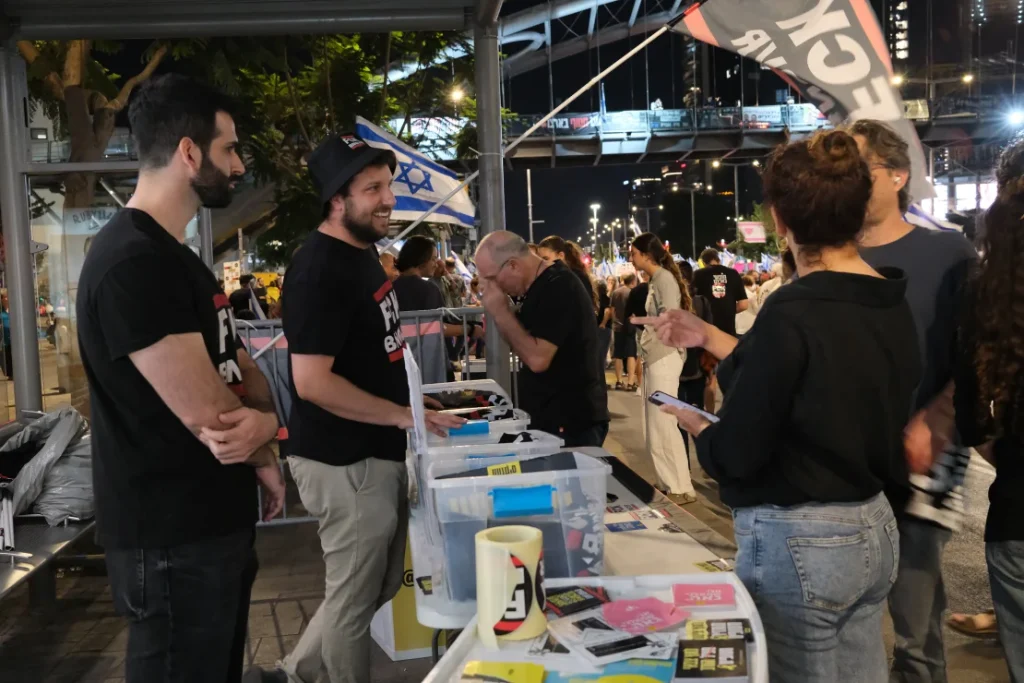
Israel Appeals to Armed Groups
In an attempt to further pressure groups holding hostages, the Israeli military over the weekend began dropping leaflets in Gaza featuring an image of Sinwar’s lifeless body. The leaflets contained a message offering safe passage to anyone who helped return the hostages to Israel. “Sinwar destroyed your lives… Hamas will not govern Gaza anymore. Finally, the opportunity has come for you to be liberated from its tyranny,” the leaflet read, urging individuals to surrender their weapons and return the captives in exchange for peace.
Time-Sensitive Opportunities
As hostilities continue in Gaza, the situation remains fluid. While the death of Yahya Sinwar has created a potential opening for negotiations, many obstacles remain. Hostages may be held by multiple groups, some of whom are not directly aligned with Hamas. Israel’s attempts to negotiate will likely depend on how quickly they can identify and engage with these factions.
The Israeli public, meanwhile, continues to rally around the cause of the hostages. As the conflict drags on, the pressure on Prime Minister Netanyahu to secure a deal and end the war is likely to intensify.

